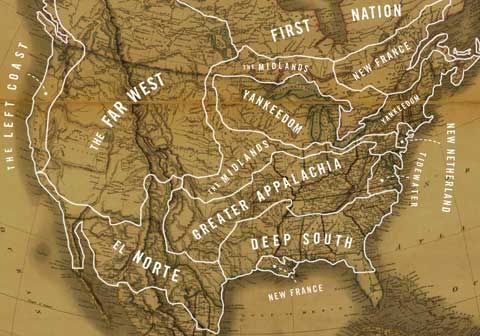I just read a review of Colin Woodard’s American Nations: A History of the Eleven Regional Cultures of North America. We are not surprised that Europe has regional cultures (that do not exactly correspond to countries). Those of us who have experience in Latin America know that Costa Rican culture is different than Honduran, and that Mexican cultures can be much different than Brazilian cultures.
The regions of the United States have very different histories, going back to their original inhabitants and settlers. We may have a common language (with differences in second languages among regions), but in many other ways our cultures are contingent on their histories. The post Civil War political and economic histories of the deep south and the north east were quite different. The industrial histories of the rust belt and the sun belt were quite different. I also feel that geography and climate influence culture, if only because they determined the agricultural bases of the regions, and for much of American history (and even now) much of the country had an agricultural economy.
We also have a two party system, with "broad umbrella" parties. That is, there is considerable diversity within each party. However, people have to choose one or the other party if they wish to have influence in national (and even state) government. Tea Party Republicans and moderate Republicans may sometimes be uneasy in their alliance, but that alliance enables both to achieve some common objectives. Similarly, Blue Dog Democrats and more liberal democrats form a sometimes uneasy alliance as part of pragmatic politics.
As I understand it, Woodard holds that the Deep South is relatively powerful within the Republican party and Yankeedom within the Democratic party. In my lifetime Nixon's Southern Strategy saw the Deep South switch from Democratic to Republican, leading to a massive change in the political dynamics of the nation. Thus it is possible for a cultural region to switch its allegiance from one political party to the other. Perhaps with the changing demographics or changing rates of voter participation we will see further changes in the dominant political party in some regions.



No comments:
Post a Comment